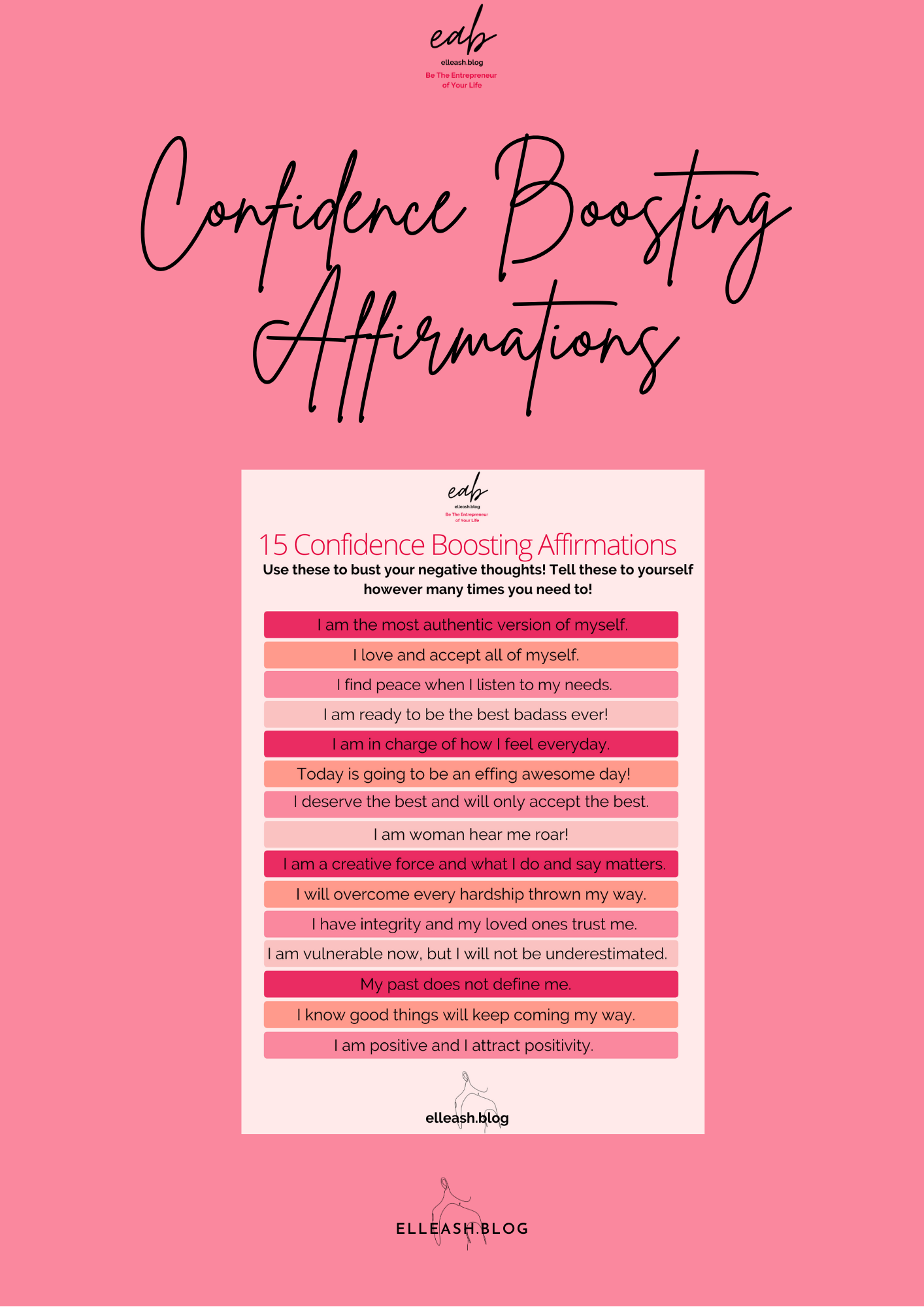Last Updated on January 10, 2025 by ELLEASH

This post will detail journaling for self and how you can really embrace the art of it.
If you are starting out, or if you have had a journal for a long time, and would like your experience to be more mindful and intentional, you are sure to find great tips in this post.
I will be detailing why journaling is considered as self care, why it's super powerful to a balanced lifestyle, how you can create a journaling habit, the general benefits of journaling, but also touching on the mental health, as well as the physical benefits of journaling, the different types of journals you can have and I will be finishing up with some tips to ensure your journaling is as mindful, intention, and enjoyable as possible.
This post may contain affiliate links, which means that I earn a small commission with every purchase you make through my links, and of course, at no additional cost to you. I do greatly appreciate it, as it helps me run my blog and post content that will help you in your daily life.
Please read the full disclosure here.
Oh, and just in case — I am NOT a mental health professional! What I write are my experiences, tips & personal advice. If you are in need of help, please don't hesitate to contact a professional!
Please read the full disclosure here concerning that point.
Okay, that's out of the way - READ ON!!
THIS IS AN ADVERTISEMENT
CONTINUE READING BELOW
Journaling For Self Care

Hey hey my lovely entrepreneurs,
If you have been following me for a while, you will know that I am a true believer in self-care and reaping from its benefits. Because the benefits of self-care are huuuge!
One of those benefits is that my mental health, and more specifically my anxiety, have been able to remain fairly stable, despite the current global pandemic.
I will always have my share of ups and downs concerning my mental health, yet the one thing that has enabled me to stay a little more grounded, happy & mentally well, is journaling.
Journaling has been an important constant in my life, for a very long time, yet more than ever I feel that this past year, it has been an essential part of my day that I have desperately clung to and looked forward to doing.
It is my moment of self care that helps me navigate the murky waters of my mental health.
This is why I wanted to really dedicate a whole post to JOURNALING. Grab a nice hot or cold beverage as this post is going to be a lengthy one!
I have a related post on journaling, which gives you 35 Journaling Prompts when you are starting out, or just in need of some inspiration. You can read the post here.
THIS IS AN ADVERTISEMENT
CONTINUE READING BELOW
3 facts that Detail
Why journaling is powerful

Amy Shamblen on Unsplash
1. People who journal experience better moods
I know that whenever I am having a bad day and that it seems the world has caved in on me, when I journal, I am able to jot down all that I am feeling and just vent it all out!
It definitely does improve my mood and helps me feel much more grounded and balanced.
2. Journaling helps to reduce stress
Being able to write down and vent, is a great de-stresser for me!
I am a fairly cerebral person, so when things are not going the way I thought they would, I get into my head and create all these possible scenarios and none have a great outcome!
It just induces my stress levels and doesn't make for anything productive!
So being able to write my thoughts down, find solutions and see them written down, helps lower my stress levels for sure.
I have a post on the 10 Ways You Can Reduce Your Stress Naturally, you can check out if interested here.
If you are looking to live a stress free life, sign up to my FREE Mini-Email Course on "7 Days To A Stress-Free Life". You are definitely bound to find something that helps, if you are mega-stressed!
3. Regular journaling is an effective tool to fight anxiety
As stated previously, I suffer from anxiety and sometimes it is so severe that I find myself absolutely helpless and feel completely diminished, in my intellectual abilities.
My thoughts get all muddled up, I find it incredibly hard to function properly and sometimes when my anxiety is really bad, it can lead to panic attacks - which if you have had them, all you want to do is crawl into a hole and never come back out!
The fact that I am aware of my anxiety and that I am able to control it most of the time, is thanks to my regular journaling.
Having regularity in my life is essential to calm my bouts of anxiety. Routine and routine activities is like having a constant security blanket with me.
So, journaling definitely has that unwritten power, that I need and love having in my life!
There are obviously other facts, but I can only attest to these for you.
The point that I love the most about journaling and its benefits, is that there is no one-size-fits-all kind of journaling you must do, in order to reap those benefits.
You can journal in a variety of ways depending on your likes and needs.
Some self care posts that may be of interest to you:
THIS IS AN ADVERTISEMENT
CONTINUE READING BELOW
How To Create A Journaling Habit

Shifa Sarguru on Unsplash
There are few things quite so effective at changing your life as journaling.
In fact, journaling is one of those ‘keystone’ habits, as talked about by Charles Duhigg, in his book, The Power of Habit.
He describes how keystone habits tend to build a whole host of other positive habits around them almost entirely by themselves.
For example, think of how a decluttering habit leads to cleaner and tidier surroundings at home, eventually affecting your workspace. The decluttering habit may then move into non-tangible areas of your life, such as your relationships. This could be likened to being a domino effect.
That’s because a keystone habit is a core found at the center of other patterns.
In the decluttering example, the core concept is to remove things from your life you no longer need, or that no longer give you joy. This will force you to examine the objects you have in your life, and in turn, most probably, look at other aspects of your life that you could be altered as well.
As you get used to this mindset, you start noticing other areas of life where you’re holding onto things you no longer need, and that don’t give you joy.
This very naturally leads to things like the ‘decluttering’ of relationships, or the sudden desire for a shift in career.
Now think of journaling as a keystone habit.
What is at the core of journaling which makes it so significant? The core of journaling is not only the ability to express yourself but the need to.
Journaling forces you to examine and understand the world around you. At the same time, it places you within the world, inviting you to see and understand your role in things.
This constant examination and re-examination of yourself is a powerful thing with far-reaching consequences.Being able to create a journaling habit will undoubtedly help you stay on track with your mental wellness.
THIS IS AN ADVERTISEMENT
CONTINUE READING BELOW
7 Obvious Benefits Of Journaling

There are so many benefits to journaling, as I have outlined above, so even if you never reach beyond the surface of journaling, you will still find numerous positive benefits.
I have outlined 7 obvious benefits of journaling below.
1. Your Words Matter
Being able to put into words how you perceive the world is a feeling like no other. The very act of doing so gives a sense of great satisfaction. After all, these are your impressions, put forth uniquely in your own voice.
2. You Develop Your Creative Spark
The more you write, the more you’ll see how things fit together. This leads to new ideas starting with a “what if…” and goes from there, into creative leaps, taking you into fresh and new territory waiting to be explored.
3. You Cement Learning
Even the things you already know become more concrete and tangible once you set them down on paper. If you really want to understand something thoroughly, journal about it.
4. You Put Things in Order
Writing things down helps you easily see what you need to do and how to go about doing it. This is organization, plain and simple. It enables you to accomplish more while feeling less frazzled.
5. You Realize Goals
When you journal, you set down your visions and dreams for the future, and at the same time create the roadmap to get you there.
Writing about goals on a regular basis keeps you inspired.
Writing about the steps along the way helps you keep on course to reach those goals.
It’s so helpful to track your progress and mark down each milestone as you reach it.
Anybody else have a (healthy) obsession with ticking things off their lists?? I know I do, but that is because I am a visual person - I need to see what I have achieve, what still needs doing and how far I've come.
6. You Become a Historian
Your journal becomes a record of your personal history. No one else is experiencing the world in the same way you are. Your impressions, the very actions of your life have importance.
Because you journal, you preserve what it means to be you, here in this moment for your future self—and even generations to come.
7. You Become a Writer
In the end, the daily act of writing develops your ability with words, a habit of putting thoughts on paper, and a voice uniquely your own. You have become a writer, ready to stretch your wings and fly into the world of stories, articles, and books if you so desire.
Maybe blog writing?!
THIS IS AN ADVERTISEMENT
CONTINUE READING BELOW
The 14 Mental Health Benefits Of Journaling

What you may not realize is that journaling takes you much deeper, into a world you might not even be aware of.
The true power of journaling is how it affects you personally, in your interactions with others, and your understanding of yourself.
Here are a multitude of benefits that I have realized have a positive & powerful impact on my mental health and that could do wonders for you as well!
THIS IS AN ADVERTISEMENT
CONTINUE READING BELOW
1. Your Mood Improves
When I write things freely, I'm given the ability to vent on paper. This action has a way of removing the crap of the day from me and I immediately start feeling better.
Who doesn't like venting? The fact that I am doing it on paper, helps me regain my calm. I like comparing this to using a punching bag! When all the negative stuff that accumulates during the day comes to a head, being able to punch a punching bag makes you feel liberated and a little less stressed!
Well my punching bag is my notebook and the words that I write in it. Once I've vented, I feel so much better and my mood inevitably improves!
2. Your Anxiety Diminishes
While journaling might not be the cure for my panic attacks just yet, the very act of writing about the things causing worry and angst helps put things into perspective.
At the very least, journaling traps them on paper and removes them from my mind so I can better process these worries.
This step back is what enables me to take a deep breath and relax so I don’t get so caught up in a worry spiral where I can’t see the forest for the trees.
3. You Gain Clarity
If you’re having trouble figuring out the best course of action in a problem, writing about it is a sure way to get a clearer perspective.
Many times, we’re simply too close to the situation. When you step back and try to put things into words, generally you start seeing things you may have missed, and as a result, gain better insight to your next steps.
4. You See Things as They Are
We are not always as honest with ourselves as we would like to be. I know I'm not. Despite knowing certain outcomes, I will unashamedly tell myself it's better, or worse, than it really it is. And truly believe my untruthfulness! I know right? (Slapping my self on the head!)
That is why I love journaling SO much. I truly appreciate how present, mindful and true to myself I really have to be to reap the benefits from it, but also just for my mental wellness in general!
Journaling is what forces us to see the lies we tell ourselves so that we can see past them to the truth.
Thankfully, the act of journaling, while calling us on our BS, is also non-judgmental.
5. You Become a Problem-Solver
The very act of writing down a problem often leads directly to a solution.
If not, the writing process becomes a way to work through the options to solve whatever problem is plaguing you.
This gets interesting when used as a process because you’re triggering the creative side of the brain over the logic side when you use writing.
This enables you to find solutions you might not otherwise.
THIS IS AN ADVERTISEMENT
CONTINUE READING BELOW
6. Helps You to See the Rhythm of Your Life
Nothing helps you to get a better handle on the routines, habits, and cycles of your daily life than writing down your actions every day.
After a while of doing this kind of writing, you start to see where the patterns are, good and bad. This enables you to address habits and poor choices with an eye toward change.
7. Journaling Becomes Therapy
Only writing allows you to work through complicated emotions so thoroughly.
By journaling about the peaks and valleys, and then working to determine what causes moods and even triggers, journaling helps you identify better courses of actions.
This is why journaling is such a favorite tool of therapists, making it a part of your daily recovery process.
8. You Get to Know Yourself Better
The more I work through the deeper issues, the more I start to understand my own moods and reasons for doing things. This kind of self-knowledge is essential to having balance in my life.
Having balance means my mental wellness is spared the craziness it can be thrown into!
9. You Start to Understand Forgiveness
When you write about the things that hurt you in the past, you also learn how to let those things go.
This is how you finally move beyond the past and come to embrace the future. A necessary step here is forgiveness.
Journaling is the perfect place to work out those complex emotions of hurt and betrayal so you can finally lay them to rest.
If there are relationships you need to be healed from in order for this to happen, you have the place to work through the emotions holding you back from being able to do so.
THIS IS AN ADVERTISEMENT
CONTINUE READING BELOW
10. You Deal with the Past
Sometimes the act of laying things to rest isn’t quite so easy as forgiveness and moving on.
Some hurts take time to work through, especially those that happened in childhood when you didn’t have the understanding of what was truly going on.
Journaling helps you to work through those memories, giving you clarity and understanding you can use moving forward. You might have to do some work here, to rewire the messages your past is trying to provide you with.
Luckily, journaling is an excellent tool for working through damaging messages from the past and turning them into more positive statements of self-affirmation.
Click the free download to receive your Confidence Boosting Affirmations. These exact 15 Confidence Affirmations have kept me balanced, aware and mindful that being self-confident can be learned and must be nurtured.
Far from being devastatingly traumatic, my life has its share of ups and downs, so using journaling to get through it all has seriously been my empowering moment. I cannot stress how much being able to have this outlet can help you mend past wounds. Even if it can take time.
Sometimes those baby steps are exactly what you need to get through events that have been hurtful to you, understand them, learn from them and then bury them forever!
THIS IS AN ADVERTISEMENT
CONTINUE READING BELOW
11. You Discover & Learn About Empathy
Have you ever had trouble putting yourself in someone else’s shoes?
It might be easier to try it in writing first.
Discover true empathy as you become more sensitive to those around you.
Journaling teaches compassion.
THIS IS AN ADVERTISEMENT
CONTINUE READING BELOW
12. You Resolve Disagreements Better
Empathy might put you in someone else’s shoes, but it can’t make them like you.
When you have a disagreement, where do you turn to?
Personally, my journal helps me work through the details of what went wrong. Obviously, I don't carry it around with me all the time, but I will sometimes use it as a 'practice place' to work through solutions.
Sometimes, being able to rehearse the dialogue necessary to resolve a disagreement, but on paper, is super productive and avoid verbal joisting. Especially when you may regret saying something or not saying it at all!
By utilizing this technique, when the time comes, you will have the words needed to act as a peacemaker.
THIS IS AN ADVERTISEMENT
CONTINUE READING BELOW
13. You Discover Truths About Yourself
Journaling reveals a lot more than your basic likes and dislikes.
As you write, you’re going to discover a lot of truths about yourself, even some that have remained hidden until now.
You learn what drives your emotions as well as your actions. This knowledge can help enable you to work through your negative behavior patterns.
The beauty of this is how much stronger you come away after the fact.
You start to see all the ways you’re connected with the rest of the world and your importance in those connections.
You come to trust the person you’re becoming, and even to like yourself (gasp!).
In short, journaling helps you to become your very best version of you.
THIS IS AN ADVERTISEMENT
CONTINUE READING BELOW
14. It Puts you in Balance with the World
There is a certain harmony that comes from living a life in tune with the world.
Journaling helps you to see where you fit in. You find connections to the world around you, to the people and things in your life.
You discover the symbiotic nature of life and come to embrace your part in the universe.
In this aspect of things, journaling truly does inspire peace and unity.
THIS IS AN ADVERTISEMENT
CONTINUE READING BELOW
The Physical Benefits Of Journaling

Stress is well-known to be a major health problem in most adults' lives. Of course, external factors from economic downturns, to the impact of racism, to political conflict, have a negative impact on our stress.
It goes without saying that 2020 was the Mother of all years, and the beginning of 2021 as well. The COVID-19 pandemic has truly taken a massive toll on our mental and physical state.
From having to juggle our work routines with the education of our kids, to the economic repercussions this disruption is causing, as well as seeing a monumental shift in our relationships with others, it comes to no real surprise that 78% of Americans have stated that the COVID virus has been a significant source of stress in their lives, according to the 2020 APA survey on stress across America.
It's no wonder we are having to find alternatives to ensure we aren't going nuts!
Journaling has proven time and again to help fight stress. Stress if one of the worst things for our health. It affects our diet, sleep and mood. On top of that, it releases damaging hormones into our body.
Reducing stress is often the trigger to a whole host of health benefits.
As a stress relief tool, journaling can actually boost your physical health.
- The very act of writing about things you are connected to emotionally activates certain areas in your brain.
When these areas are activated, you can more efficiently process, generate a more pleasurable mood, and function cognitively at a higher level. All of which helps you come up with creative solutions to any potential problems or stressors in your life.
- In short, journaling gives some of the benefits you’d get if you were ranting to your best friend.
Seriously! Although, nothing can take out the pleasure of having your girlfriends around and ranting and venting, sometimes having that solace of writing your thoughts down, can be as cathartic.
- Journaling also gives you the added bonus of an increase in reasoning skills and a shift in mood for the better that is more long-lasting than what you would get in a rant session with your BFF.
- People who are less stressed have better immune systems, heal faster, and tend to enjoy a better quality of life.
Nowhere is this more evident than in people who are going through serious medical issues such as cancer.
Not all the benefit is from mere stress reduction though.
- Journaling has been proven to raise the quality of life in patients.
Those who journal while dealing with a severe medical condition do better in accepting their diagnosis and processing everything going along with it. These patients do far better in treatment than those who do not journal.
You can read this article from CancerCare which details what you can actually journal about if you are in this particular situation.
In the end, it’s impossible to deny the benefits that come from journaling. With so many reasons to journal, the only question remaining at this point is how to go about getting started.
THIS IS AN ADVERTISEMENT
CONTINUE READING BELOW
There Is A Journal For Everything
Once you’ve decided to journal, you only need to find a blank book of some kind to jot things down in, right?
For most people, it’s not quite so easy. Nothing inspires writer’s block faster than a blank page. To combat this feeling of imminent failure, the simplest solution is the most obvious one: Decide what you want to write about before you even begin.
Easy, right?
While this might work for a journal entry or two, the truth is most people do best by using a themed journal, especially when just starting.
I know, that when I was starting, by picking out only one kind of thing to write about, I put myself into a particular mindset daily. I found myself looking for things that matched my theme as I went about my daily life.
Let me give you an example: if you want to start a gratitude journal, you will find yourself developing a habit of looking for things you’re grateful throughout the day so that you can include them in your daily journal.
The added benefit of themed journals is that they do make an impact into your day to day living.
So what are some examples of themed journals?THIS IS AN ADVERTISEMENT
CONTINUE READING BELOW
Gratitude Journal
The Gratitude Journal is just what you think it would be. You only write about the things you’re grateful for every day.
While this seems straightforward, especially for those who like making bullet lists, it’s not always.
The idea is to build a positive mindset and in order to be reach this goal most effectively, you need to avoid repetition.
The good news is, there’s plenty to be grateful about in your day to day life.
It could be as simple as you are being grateful for getting a great parking spot or happy you get to enjoy a sunny day!
You don’t need to find great big things to fill the pages.
Writing in a gratitude journal will help you start seeing all the simple things in life to be appreciated for too.
For maximum impact, write down three items you’re thankful for every day.
To help you on your journaling journey, feel free to download my FREE GRATITUDE JOURNAL PDF that I use when I need some inspiration.
This is a great printable if you are starting out and just need some help, plus I give you a little bonus when you download it 😉.
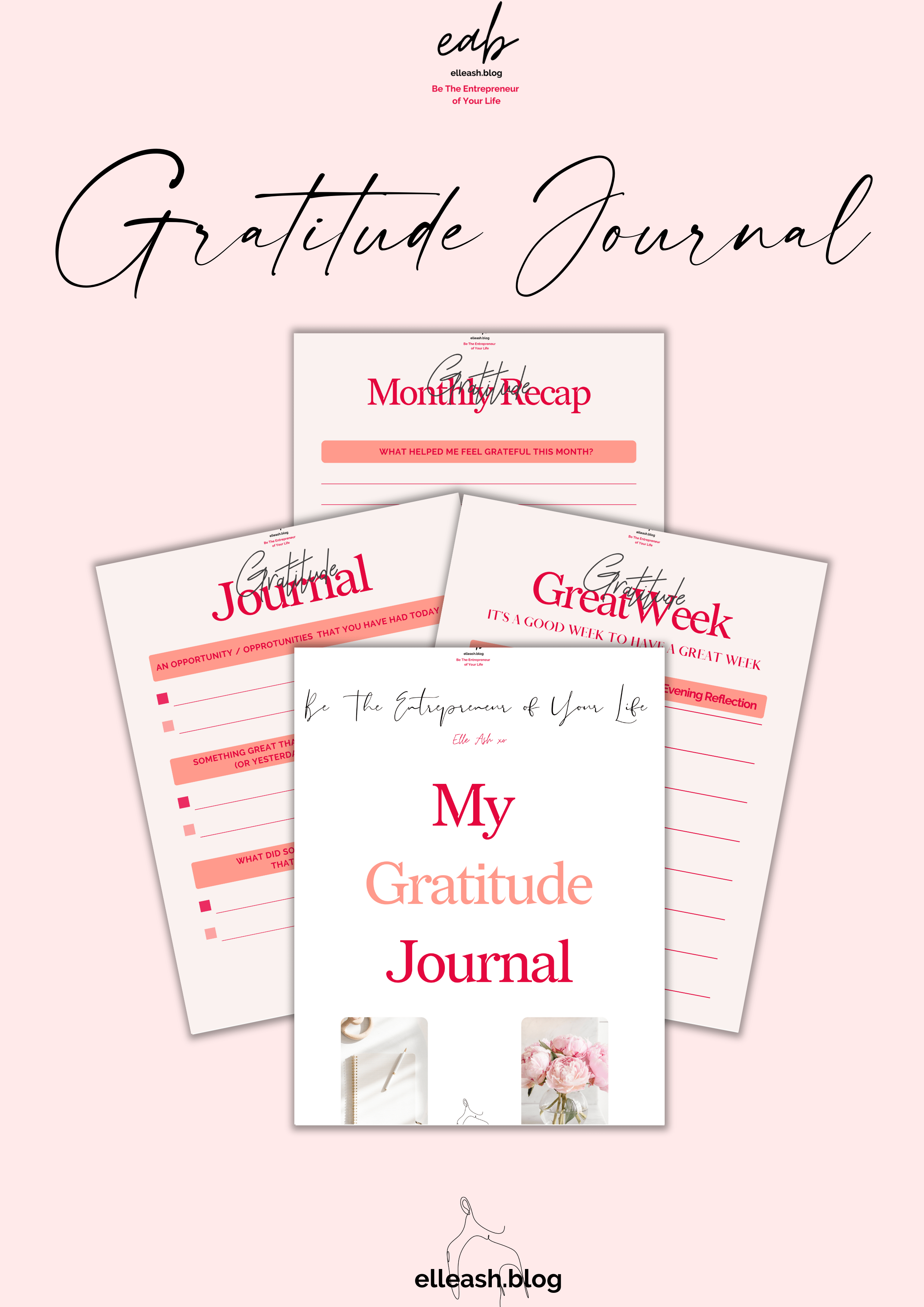
THIS IS AN ADVERTISEMENT
CONTINUE READING BELOW
Success Journal
A success journal has a different tone altogether.
While there will be plenty of gratitude in its pages, for this journal you should focus on simply recording some of your wins and successes along the way.
This might not even be a journal you keep every single day. This is the type of journal you take out when needed.
The whole idea here is to compile a list of encouraging moments and motivating wins.
Any time you have a “win” in life, jot it down in your journal. You can spend some time explaining why it was important to you as well.
This way, the next time you are feeling down, or ready to give up – you can read the journal. You will have a list of “receipts” right in front of you that proves you have succeeded in the past – so you can do it again!
Being an entrepreneur I like to jot down in my success journal all of the nice comments I receive, and have received, from current and past clients. This way, when I get some bad feedback/comments, or am feeling like a failure, I can read my journal and it boosts my confidence!
This reminds me of all of the people I have helped and who have enjoyed my services.
What is more motivating than that??
THIS IS AN ADVERTISEMENT
CONTINUE READING BELOW
Goal Journal
The focus here is on creating a very specific goal and following this goal to completion.
This journal keeps track of the steps along the way.
Your goal journal is a recording of your failures as well as your successes. More importantly it includes what you learn from both.
Some people think of their goal journal as a business document, as though it’s an accountability log for your business or job.
I encourage you to take it far beyond a mere recitation of facts. Use your goal journal to note how you feel about the goal, or to explore the fears or difficulties that might be holding you back from realizing your goal.
You can make the goal journal as personal as you want.
To begin, define the goal you want to attain, making it as concrete as possible. You can download this free 1 page PDF printable, directly to your computer now, to help define exactly what you want to crush, and then the steps you can take to do just that.
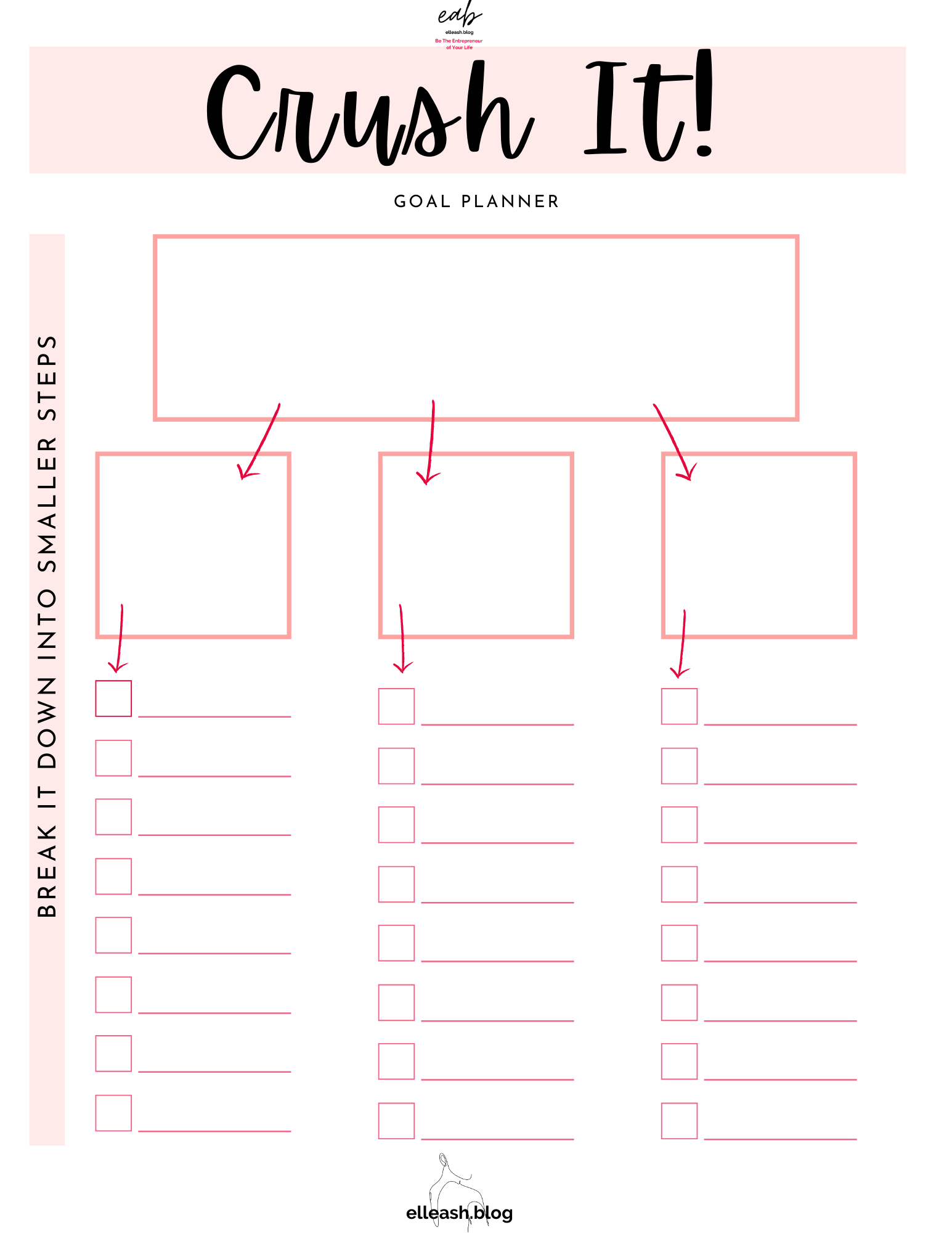
THIS IS AN ADVERTISEMENT
CONTINUE READING BELOW
Habit Journal
A Habit Journal does just what it sounds like – it helps you to form new habits.
Considering how long it takes to build a habit, the point here is to keep track of your progress in developing new behaviors into your life.
More than a calendar where you might mark down whether you performed that habit on this particular day, a habit journal expects you to be accountable at the end of the day.
You begin by listing the habits you wish to form, following up by scheduling those habits (here’s where you might want to use a calendar or an app on your phone to give you periodic reminders of the pattern).
At the end of each day, you want to spend a few minutes journaling about your habit experience.
Remember, this is a journal, so you’re not just writing down whether or not you performed the habit, but what happened when you did.
How did it feel?
Were there roadblocks along the way?
Was there something unexpected that cropped up, such as a trigger you maybe need to work through?
Sometimes what blocks us from accomplishing a goal, such as a new habit, is something from the past. Your habit journal is the perfect place to work through those thoughts and emotions.
Begin by making a list of new habits you’d like to add to your daily routine.
Choose only one or two to work on at a time, so you don’t burn yourself out.
I have a pretty printable just for you that you can download for FREE below, that will be able to guide you on your new journaling routine.
I use this journal whenever I have a new habit that I would like to track. I enjoy reading and going back to the beginning of the journey. Last year, I took up the new habit of drinking at least 2.5 liters (0.66 US liquid gallon) of water a day.
Without going into the details, it's super hard, BUT with my habit journal, I can write down what works and what didn't work, what days I felt better after drinking my dose, how I felt like when I didn't drink enough, what my skin looked like, etc ...
As you can see, a habit journal is a great source of information in the long term!
I love that this specific printable is super simple and straightforward to use. I hope you'll enjoy it too!
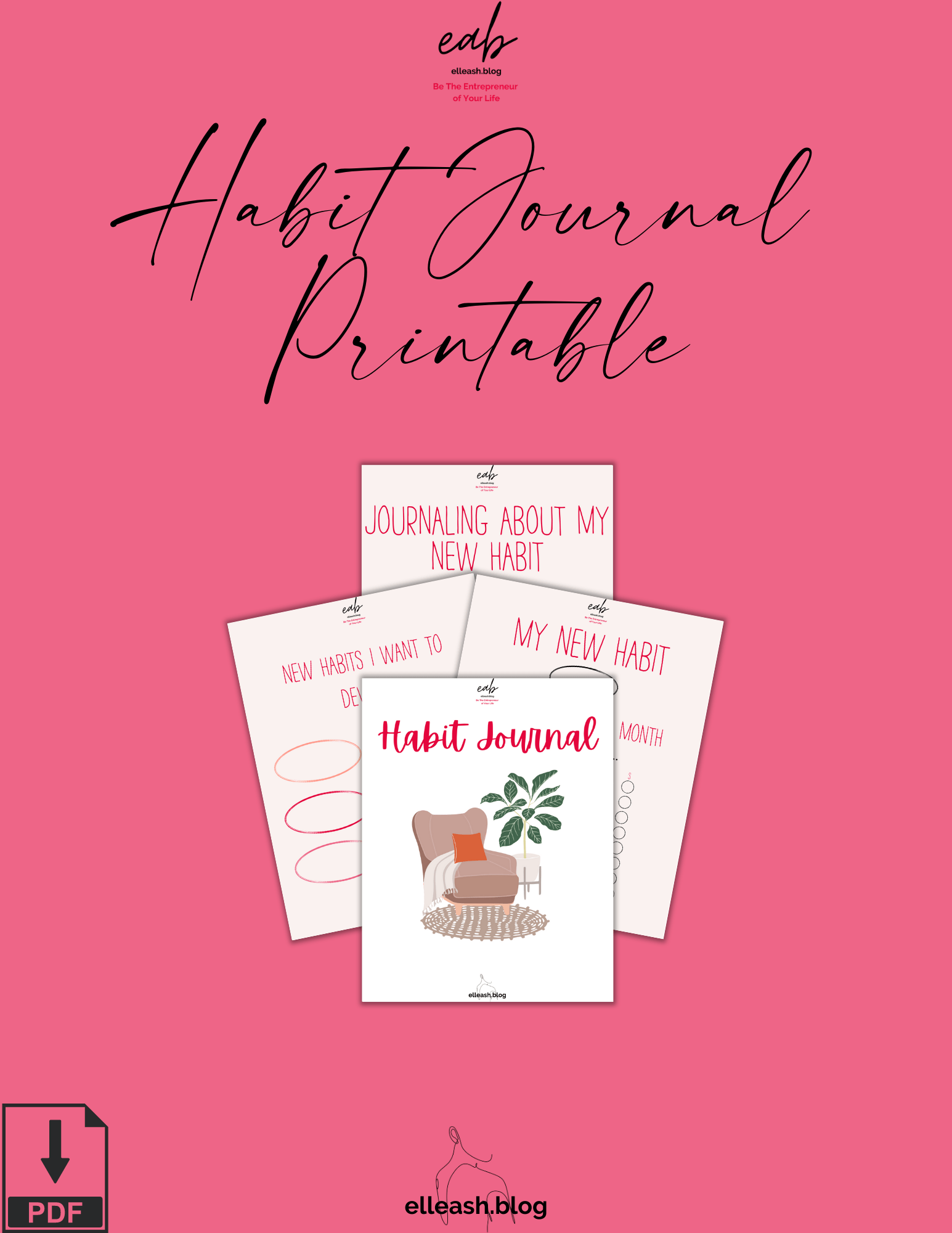
Food Journal
A Food Journal is pretty straightforward.
In it, you track what you eat, with an eye toward healthy nutrition and ultimately improved health.
In this recent post, that you can read here, I detail ways you can sneak more fruits & vegetables into your, and your family's, diet. That may be one aspect of your diet, you may wish to track, in your Food Journal.
Generally, this is used for weight management, but you can use a Food Journal to track foods for other reasons, such as keeping track of the sugars in the foods you eat if you have diabetes.
This kind of journal is more important than you probably think. It’s been proven in countless studies that people who kept a food journal met their weight loss goals, or other health-related goals, more frequently than those who did not.
Don’t get too caught up in just listing foods though. Your Food Journal should also be a place to explore your feelings toward food, especially if you find you’re an emotional eater.
Begin by stating your goals for your journal and by expressing your feelings about food in general. After that, dive right into recording the foods you eat, not forgetting to chart your progress as you go.Bullet Journal
A Bullet Journal, or affectionately known as the BuJo, is not so much a theme as a style, but it works particularly well if you’re one of those people who enjoy making lists.
If you have been reading my blog posts, you will know how obssessed I am with lists!
It’s exactly what it sounds like—a place to write things down in a list format rather than in long rambling posts.
A BuJo can be used in any context, such as gratitude, tracking goals and monitoring your progress in life.
For those of an artistic bent, there’s a surprising amount of room for creativity with a Bullet Journal. People often create beautiful looking BuJos that help appease both their logical and creative mindsets.
The nice thing? You can track your whole life in bullet points over a set series of lists, divided into daily goals, monthly goals, and future goals.
Bullet Journaling doesn’t take much time out of your day, and because you can keep track of your life at a glance, it’s ideal for just about anybody.
Looking for an awesome Bullet Journal Template? My basic BuJo, that I created for myself when I was starting out with bullet journaling, can be downloaded for FREE!


THIS IS AN ADVERTISEMENT
CONTINUE READING BELOW
Not Every Journal Needs a Theme
I've only listed a few journals, but not every type of journal is listed here.
You might decide you want to create a dream journal or a way to track story ideas if you’re a writer. Maybe your journal is heavier on artwork than words.
You might just want a simple, non-themed journal. Sometimes this is the most powerful type. You just want to jot down random thoughts each day.
The point is, any kind of journal is fine, so long as it serves your purpose.
Create the journal that you need the most and organize it in the most logical way to you for optimal success.
The BuJo I created for you is a simple template, with the basic pages such as a weekly & monthly spread, like you would have in a planner. But it also has some coloring in pages, and trackers. These basic pages work in most Bullet Journals, so feel free to download it and use what you want.
Keep reading to find some tips on the journaling process. It is easier than you think.
THIS IS AN ADVERTISEMENT
CONTINUE READING BELOW
15 Journaling Tips
So there really is no wrong way to journal. As long as you write consistently, there are also other things you can do to create the maximum amount of impact upon your life.
Remember that when you are journaling, you are not only creating something tangible to help you with your mental well-being, you are also immersing yourself in some good old self care!
So what can you do to make your journaling more mindful, intentional and empowering?
1. Write by Hand

Time and time again, studies have shown writing out your journal longhand is more beneficial.
Why?
When you write things out by hand, you have better long-term memory recall, meaning you process what you’re writing more effectively. The authors of this 2017 study found that writing by hand could promote “deep encoding” in a way that typing does not.
This is important when journaling, as the whole point of putting things down is to guide you through processing data, whether you’re writing details about your day or recalling something that happened years ago.
Another study, from 1999, showed how people who journaled longhand processed the traumatic events they’d experienced much more quickly and were able to move on faster than those who wrote similar entries on a computer.
Of course, you could argue that this study is over 20 years old and most of us have grown up with typing on computers, so it's nearly second nature. But experts who study handwriting say there’s reason to believe something is lost when people abandon the pen for the keyboard.
So, while there was still measurable benefit for people who wrote on the computer, in the 1999 study, there was such a significant rate of increase in writing by hand that the recommendation was clear: Journaling by hand wins hands down (lol!).
THIS IS AN ADVERTISEMENT
CONTINUE READING BELOW
2. Choose your Journal to Fit Your Needs
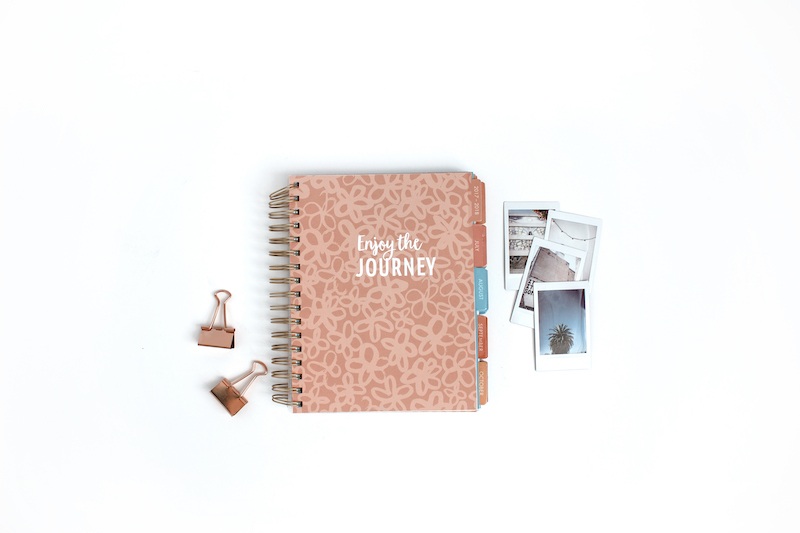
When journaling, don’t just pick out the first pretty book you see.
Consider how you want to use your journal. If you’re using a bullet journal and carrying it everywhere, you might want to choose a smaller size, one convenient to stow in your purse.
Lined or unlined pages? Choose what gives you the most freedom, allowing you to be as creative as you like on the page.Small tip: a cheaper book is more apt to be written in, as the tendency is to ‘save’ a more beautiful journal (like the fancy leather-bound ones) for only special posts worthy of the book.
THIS IS AN ADVERTISEMENT
CONTINUE READING BELOW
3. Start Simply
There’s no need to go for long, elaborate posts from the get-go.
Write what’s comfortable in the format you’re most comfortable with. Don’t be afraid to switch things up and try new things until you find the model that works best for you.
It’s so easy to overwhelm yourself if you get wrapped up in complexities, like having the perfect bullet journal or requiring you to start with an inspirational quote at the top of your entry every day.You can always add in the finer points later as you get more used to the idea of writing every day and feel surer of yourself.
THIS IS AN ADVERTISEMENT
CONTINUE READING BELOW
4. Ignore The Word Count
There is no perfect length for a journal entry.
Write what’s on your heart. This might mean three pages of dense text one day, or a bullet point list another. That’s fine.
This is your journal. You do what you need to do with it.
THIS IS AN ADVERTISEMENT
CONTINUE READING BELOW
5. Embrace Inspiration
If you find yourself with an idea or something you want to write about during the day, make a quick note of it.
Don’t lose out on something worth exploring just because it’s not your ‘regular journaling time.’
This spontaneous list will become an essential part of your journal, as it will give you a wealth of ideas to write about when the time comes.
THIS IS AN ADVERTISEMENT
CONTINUE READING BELOW
6. Choose a Time of Day Optimal for Your Needs
Some people swear by journaling in the morning, as a way to set up your day on a positive note, geared for success.
Others like to journal before bed as a way to process the day. Whichever works for you, go with it.
While both times of day are loaded with benefits, one is no more ‘correct’ than the other.
THIS IS AN ADVERTISEMENT
CONTINUE READING BELOW
7. Go Into Detail
When writing about an incident, be sure to layer in the details, thereby making the story so much more profound and interesting.
These are the words that will bring the memory into sharp focus years later when you re-read the entry.
THIS IS AN ADVERTISEMENT
CONTINUE READING BELOW
8. Focus on the Emotion
When detailing something from your day, try to put an emotion on the incident.
How did you feel at the time? How do you feel now in recalling it?
A careful examination of your feelings helps you to process the incident, allowing you to move past it.
THIS IS AN ADVERTISEMENT
CONTINUE READING BELOW
9. Don’t Beat Yourself Up
Life happens.
While you do get the most benefit from writing regularly, it might be that your schedule doesn’t allow for daily journaling.
If you write every day and miss a few entries due to being sick or some other life event getting in the way - it’s okay!
You’re never ‘behind’ nor do you need to ‘make up’ for lost entries by writing extras. Simply pick up where you left off next time and go from there.
If you’re stuck, try using prompts. This might be just the thing to get you started again. You can look up writing prompts online, as well as, read my post with 35 powerful journal prompts for beginners ( for those of you who need some inspiration!).THIS IS AN ADVERTISEMENT
CONTINUE READING BELOW
10. Make Journaling Part of Your Routine
If you strive to make journaling part of your routine – you will be less likely to forget or skip it.
When you figure out what time works best for you, try to stay consistent with that.
Even better, connect your journaling routine with an existing pattern in your life. If you have a morning or bed-time routine, try to fit journaling in there. When you do this, journaling can become as second nature as brushing your teeth.
THIS IS AN ADVERTISEMENT
CONTINUE READING BELOW
11. Forget Perfectionism
Mistakes happen.
You spell something wrong when using ink or create a mess. You cross things out as you reconsider what you’ve said. You get distracted and doodle all over the page.
Who cares? It’s all part of the process.
A journal is a reflection of you at the moment.
Embrace who you are, random artwork and all.
Write from the heart.
Content matters, not how it’s presented on the page.
THIS IS AN ADVERTISEMENT
CONTINUE READING BELOW
12. Get Artistic
If you want to play with design and graphics, create a Bullet Journal.
Or if you’re into art, consider a Self-portrait Journal where you try to express who you are in by drawing yourself each day.
Add artwork, cartoons, or creativity to every corner of the page.
Decorate with flowers or skulls.
Draw whatever suits your mood! Journaling doesn’t have to be about just the words on the page.
I love being creative, but sometimes there are times when I can't sketch what I have in mind or it jut doesn't turn out the way I envisioned it. So, I turn to Creative Market. They have gorgeous illustrations, and photos that you can buy and then us as many times you wish.
Canva is also another favorite of mine. You can create what you wish and just print it out. It's awesome!
If you love being creative, but maybe don't have a design background, or any artistic bone in you, you definitely need these 2 great sites!
THIS IS AN ADVERTISEMENT
CONTINUE READING BELOW
13. Try a Brain Dump
Feeling muddled, with too much going on at once?
Throw it all on the page in a glorious stream of writing to clear it out of your head.
Sometimes you need to let go of everything you’ve been holding in.
I have created one that you can download for free below. I enjoy this one because of the "My Not To Do List"!!
THIS IS AN ADVERTISEMENT
CONTINUE READING BELOW
14. Let Therapy Happen
You might not have realized just how deep you might go while journaling.
One minute you’re writing about your cat, the next you’re lost in some childhood trauma you’d all but forgotten.
When this happens, write what comes to you. Allow yourself to work through the memory and explore why it’s coming up now. At the same time, remind yourself this incident happened in the past. Try to let it go when you’re done writing.
15. Use a Writing Prompt
If you’re stuck, try looking up writing prompts online.
Journal prompts are a great way to get the creative juices flowing.
As you read these feel free to adapt and change them as they give you the seed of an idea.
Go wherever the ideas take you!
In this post, I share with you my 35 best journaling prompts for beginners. Although you don't have to be a beginner to consume them! You can also use them if you need inspiration.
THIS IS AN ADVERTISEMENT
CONTINUE READING BELOW
The Takeaway
Journaling is more than a diary of what happened in your day.
Journaling is a powerful tool designed to set you free from the things weighing you down in the past. At the same time - It sets you up for the success of the future!
Think of your journal as a guidebook and roadmap, an inspiration and a place to go when the world becomes too much. Your journal should feel like your home, a place where you’re safe from the world and can express yourself however you wish.
Whether you’ve chosen a Bullet Journal, something to do with Gratitude or Goals, or another topic entirely, let your journaling experience be one thing you look forward to every day. The act of writing should be freeing, with every page another stop on the way to grand breakthroughs and life-changing ideas.
Does any of this sound daunting?I truly hope this post helps to bring you closer to your journaling goals. It is a lengthy post, but details all you really need to know to begin your journey, or just feel inspired to continue on your discovery about yourself.
Don't hesitate to let me know how you're doing and how I may help you truly live the life you deserve!
Elle Ash xo
THIS IS AN ADVERTISEMENT
CONTINUE READING BELOW
